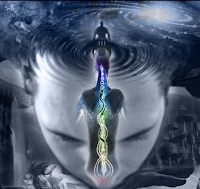
I'm not a psychologist to talk about human complexes, but I want to store here what I've understood so far about one such pair - inferiority and superiority complexes. Because I don't have a formal education in these, I will just call them mediocrity and meliority complexes. Meliority may not be the right word to use, but it sounds rhyming, so I will just continue. I'll try to keep this equivocal, because I'm still finding it ambiguous myself, as is true with most of the topics that I write here anyway.
A villager looking at the city life can get two kinds of feelings, either a 'wow' or a 'yikes', that can keep internally transitioning, in different magnitudes. Somewhere during one of those transitions, he might convince himself with a "No, this is not for me" feeling, and when posted with arguments from the other side, he could get defensive. On the other hand, a person from the city could have an opposite feeling during one his transitions between 'wow' and 'yikes' about village life. He slowly starts to convince himself saying "My God, I can't live here", and when posted with an argument from the other side, he could get snobbish.
While the apparently mediocre person in the first example, during his defensive conduct could appear to be having a meliority complex and while the apparently meliorative person in the second example, during his snobbish conduct could appear to be having a mediocrity complex, those might not be the right interpretations. Combine these with human emotions and cursory feelings, you have an intriguing case study to analyze. As long as mediocrity brings in strength and meliority brings in humility, we're in control of our emotions. But the moment it swings the other way, we're inviting trouble, not just for ourselves, but for people around us too.
Given the fact that we live in a world that is far from ideal, it is difficult for anyone to be devoid of such feelings. When we've a mediocre feeling about something, it's so difficult to get rid of it unless we can substitute the feeling with a sense of achievement over either the same thing or a different thing. And when we've a meliorative feeling about something, it's so difficult to get rid of it unless we become empathetic and believe that we could have very easily been on the other side. Even if nothing of that is possible, I think if we take the pain to listen to others as well as spend some time being introspective, we may be able to put these complexes to rest over time.
Won't complexes die? I don't think so. But you can think!
A villager looking at the city life can get two kinds of feelings, either a 'wow' or a 'yikes', that can keep internally transitioning, in different magnitudes. Somewhere during one of those transitions, he might convince himself with a "No, this is not for me" feeling, and when posted with arguments from the other side, he could get defensive. On the other hand, a person from the city could have an opposite feeling during one his transitions between 'wow' and 'yikes' about village life. He slowly starts to convince himself saying "My God, I can't live here", and when posted with an argument from the other side, he could get snobbish.
While the apparently mediocre person in the first example, during his defensive conduct could appear to be having a meliority complex and while the apparently meliorative person in the second example, during his snobbish conduct could appear to be having a mediocrity complex, those might not be the right interpretations. Combine these with human emotions and cursory feelings, you have an intriguing case study to analyze. As long as mediocrity brings in strength and meliority brings in humility, we're in control of our emotions. But the moment it swings the other way, we're inviting trouble, not just for ourselves, but for people around us too.
Given the fact that we live in a world that is far from ideal, it is difficult for anyone to be devoid of such feelings. When we've a mediocre feeling about something, it's so difficult to get rid of it unless we can substitute the feeling with a sense of achievement over either the same thing or a different thing. And when we've a meliorative feeling about something, it's so difficult to get rid of it unless we become empathetic and believe that we could have very easily been on the other side. Even if nothing of that is possible, I think if we take the pain to listen to others as well as spend some time being introspective, we may be able to put these complexes to rest over time.
Won't complexes die? I don't think so. But you can think!




